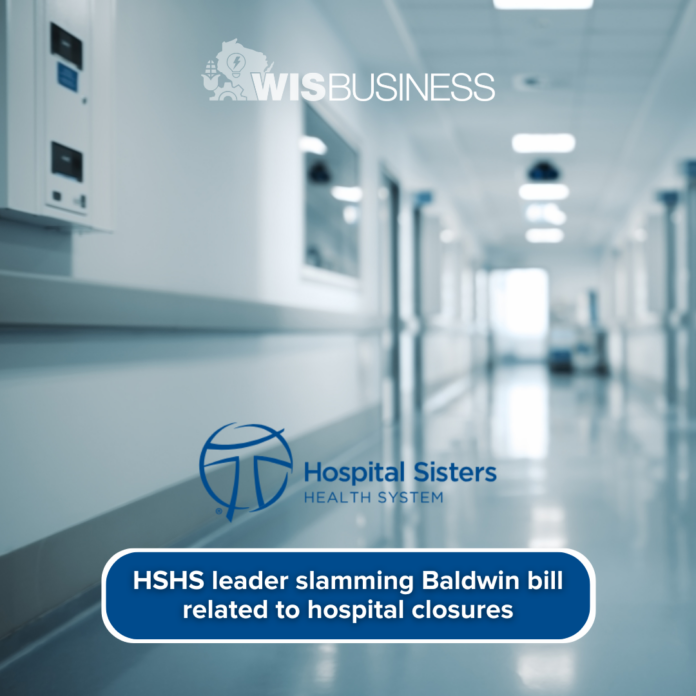The head of Hospital Sisters Health System is slamming a bill from U.S. Sen. Tammy Baldwin, arguing the restrictions and requirements it would place on health care systems are “not feasible.”
HSHS President and CEO Damond Boatwright made the comments in response to the Madison Dem introducing a bill last month that would require hospital systems that are closing to notify federal officials and ensure ongoing access to care.
“I am encouraged attention is being paid to the dire situation facing nonprofit rural community hospitals like ours,” Boatwright wrote. “Yet, requiring more onerous regulation or mandating that community hospital systems maintain comprehensive services while sustaining millions of dollars in financial losses is not feasible.”
The Hospital Stability and Health Services, or HSHS Act, was announced after Hospital Sisters Health System closed hospitals in Eau Claire and Chippewa Falls earlier this year along with other clinics in the region. Soon after, Gov. Tony Evers declared his support for Baldwin’s bill.
The move to shut down the HSHS hospitals raised concerns around health care access for local communities, and Evers slammed the Illinois-based health system at the time for blindsiding workers and his administration by abruptly announcing the closures.
In announcing the bill, Baldwin also said HSHS gave “little to no notice” for patients, leaving some Wisconsin patients with no options for critical care. Under the bill, hospitals that plan to close or end services would need to notify the U.S. Department of Health and Human Services at least 90 days earlier, among other requirements.
Boatwright says HSHS and other nonprofit community hospital operators are working in an “increasingly complex and challenging health care environment,” arguing HSHS pursued “all possible strategies” to sustain health services for the communities where it operates.
“We have cut expenses despite rising inflation, increased efficiencies and sought to attract and retain experienced nurses amid a historical labor shortage,” he wrote.
He highlights a broader trend of rural hospital challenges, pointing to a report from the nonprofit Center for Healthcare Quality and Payment Reform that found 700 rural U.S. hospitals were in danger of closing. To protect rural care, he argues “we must find solutions” that address regulatory complexities, reimbursement challenges, rising operating costs, “unnecessary” competition for patients and other hurdles.
“These are the factors that create the troubling circumstances in which hospitals have no other option but to discontinue core services or to close,” he wrote.
See his full statement on the bill.






